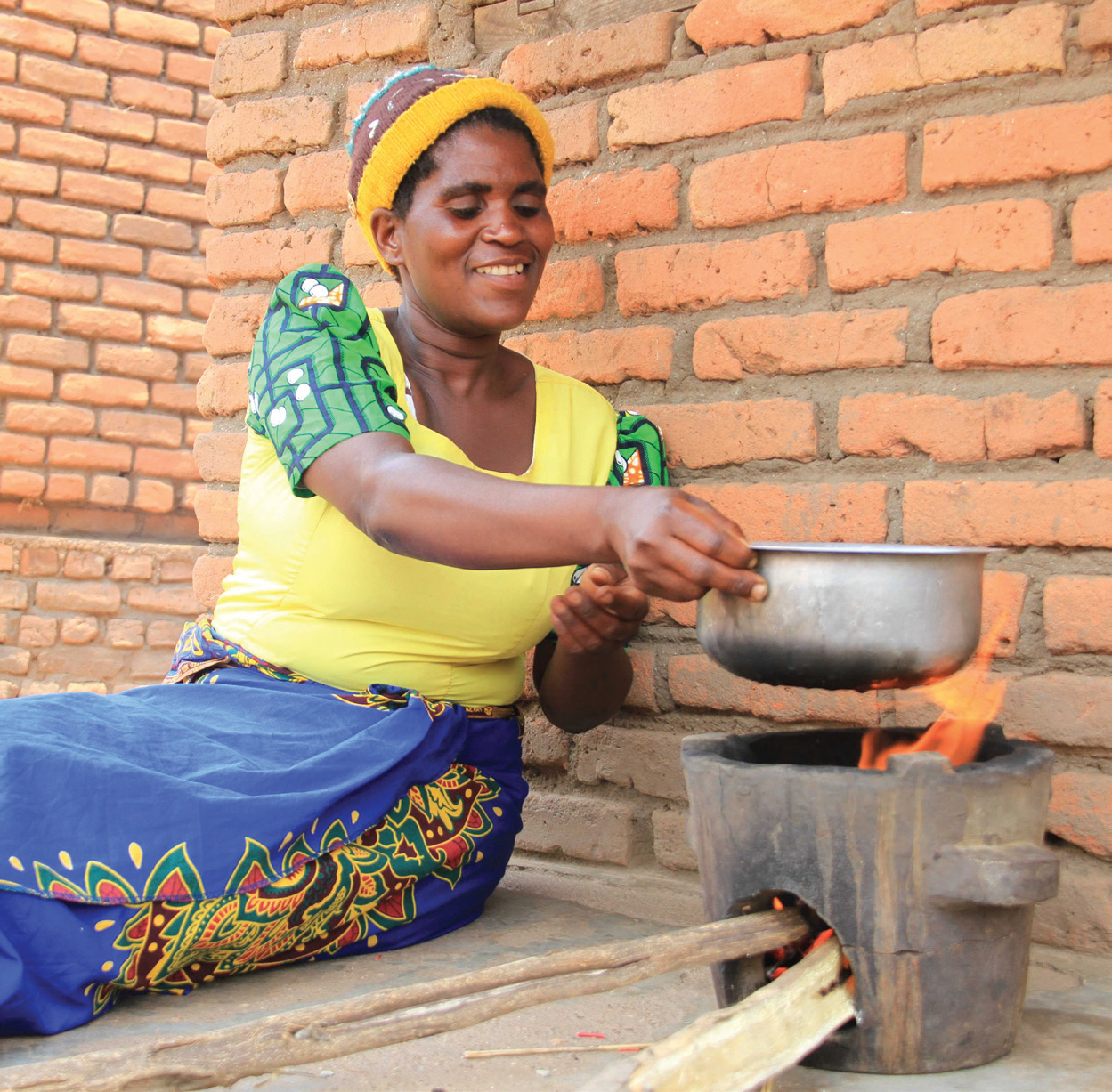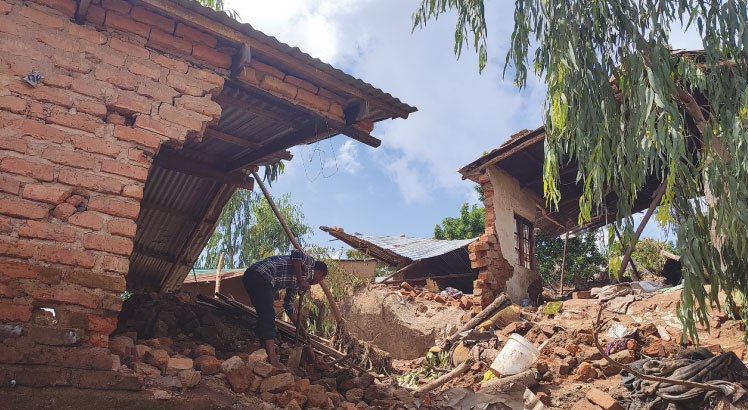Farmers stir clean cooking
Women and children in Malawi keep dying from smoky fumes of an everyday chore as over nine in every 10 homes cook using firewood and charcoal.
Indoor air pollution claims eight lives every minute globally, the World Health Organisation reports.

Put the smoky fireplaces marked with three stones in minute kitchens without windows, the emissions can be deadly.
Esther Chandamale, from Kalichero Village in Dowa, has swapped the stone-age fire with a portable Chitetezo cookstove she co-produced with her group to safeguard forests and her health.
“I no longer inhale thick smoke, soot and fumes that once darkened my kitchen walls and left my eyes bloodshot as I rubbed them and coughed hard,” she explains.
The group of 11 was trained by a National Association of Smallholder Farmers Association in Malawi (Nasfam) with support from the Irish Aid. They have made 3 700 cookstoves since 2017.
Users say the hand-made cookstove uses almost half the fuelwood required by open fires.
“You need just three pieces of firewood to cook nsima and relish for lunch or supper. The open fires consume six to seven,” she explains.
Chitetezo also reduces the times families raid forests for fuelwood.
Apart from training, Nasfam helped identify good clay for the communal enterprise and provided molds for the cookstoves production. For quality offerings, the cookstove makers put wet soil in a pit for 14 days and pound it into fine particles. They polish the final products and dry them for three weeks before curing them in an oven.
“We now sell the cookstoves to people in our district and neighbouring districts of Kasungu, Mchinji and Ntchisi. They cost K1 000 apiece and K800 in bulk,” says group chairperson Willard Shuga, a village head who uses one.
Chitetezo is known to emit less smoke than open fireplaces, saving households from coughs, pneumonia and other silent health problems.
For Chandamale, her health is almost everything. She looks after her family, crops and small business.
“Besides, I need not to cut down a whole tree because Chitetezo uses even sticks and residues from crops such as maize and pigeon peas,” she explains.
This slows the decline in forest cover.
“Even branches are enough. As forests disappear, women and children need not to walk for two hours to fetch firewood,” explains Chandamale.
In the tobacco-growing district, forests are vanishing fast while preparing the export leaf for the world market. This is worsened by the rising demand for fuelwood, farmland and new settlements.
“The main tragedy is that nearly all households in the country cook using firewood and charcoal,” says Yamikani Dalikeni, chairperson of Kalichero Village Forest Protection Committee.
Some villagers brave the two-hour walk to get firewood from forested hills instead of taking care of their households, crop fields, businesses and community services.
Traditional Authority Dzoole has banned logging, charcoal production and fires in a communal forest under the farmers’ care. The by-laws include fines of up to K15 000 or a goat for those caught felling trees in the forest partly guarded by bees in hives.
“We resolved to keep hands off the communal forest, which lost trees, so that the stumps could sprout again,” Dalikeni says.
And the forest is thickening.
Village Head Kalichero joined the cookstove production group to lead by example. He has ordered every household to use the energy-saving cookstove.
“I was concerned that the loss of trees had left crop fields gullied by racing rainwater, burying waterways in mud and silt. This affects crop harvests,” he states.
Nasfam helps the group identify markets for the cookstoves, including farmers’ clubs in Dowa and surrounding districts.
“So far, we dispatched hundreds to Chulu and Chamama in Kasungu, Malomo in Ntchisi and Mavwere in Mchinji,” explains Fanny Majoni, Nasfam field officer for Mponela Farmers’ Association in Dowa.
After sales, the cookstove producers share the money equally.
Chandamale states: “It’s a slow business, but some use the money to meet their needs, including food for the lean season as well as quality seed and other farm inputs.
“I invested K5 000 in a small business which brings K10 000 to K20 000 a month,” says Chandamale.
With fewer trips to hunt firewood, she has more time to sell some groceries in her neighbourhood.
And Kalichero is excited that the trees saved by cookstoves now slow run-offs that scrape topsoil, creating gullies in their crop fields.
They have also planted vetiver grass to reduce erosion.





